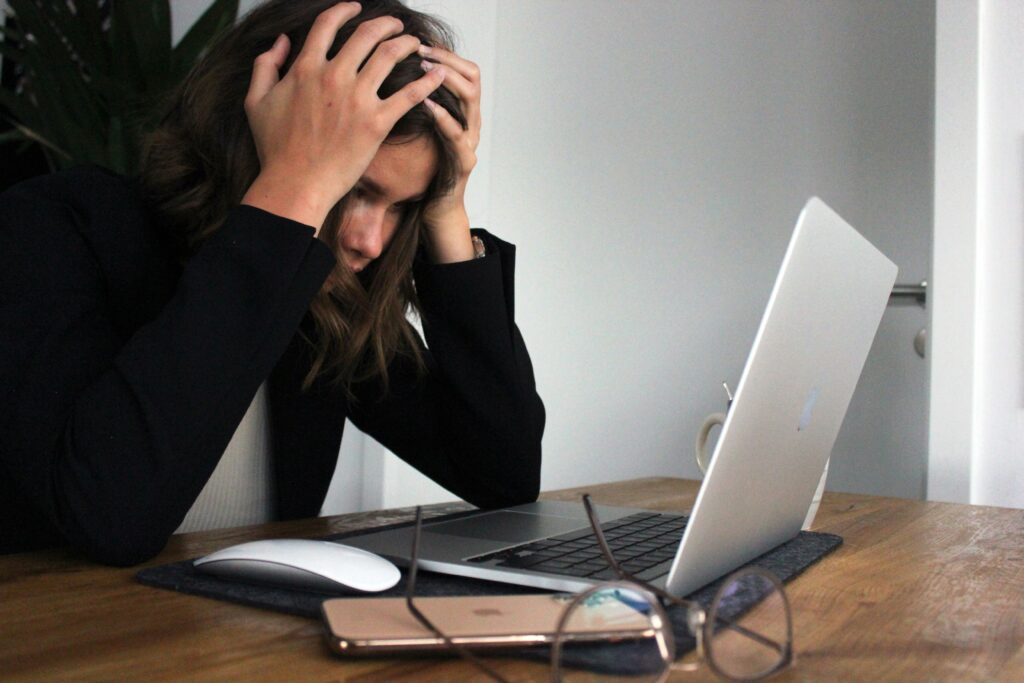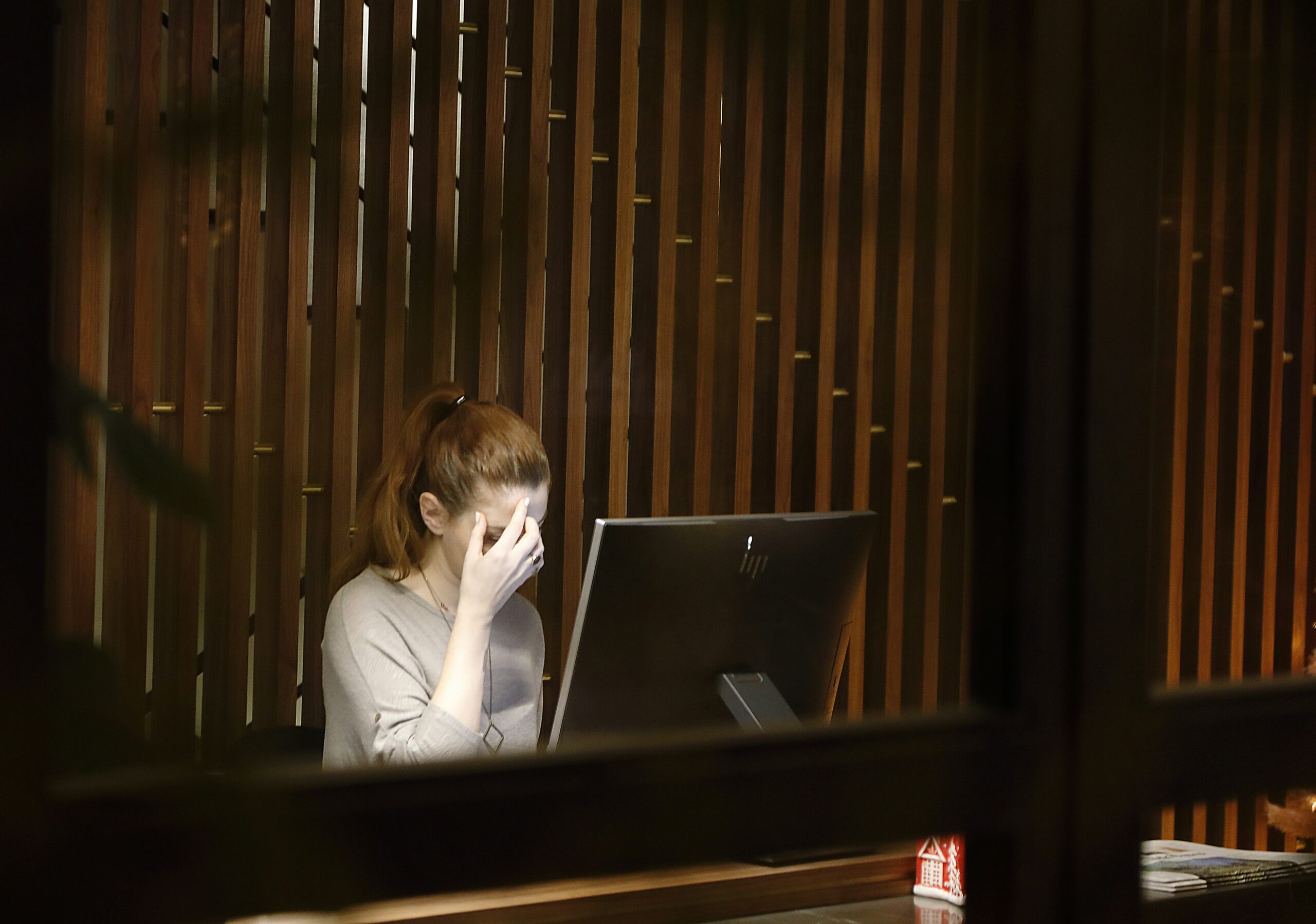I didn’t realize I was burned out until I couldn’t get out of bed, not because I was tired, but because everything just felt heavy. The kind of heavy you can’t sleep off or push through. I kept telling myself I was just having a rough week… then it became a rough month. Looking back, the signs of burnout were there all along. I just didn’t know how to recognize them for what they were.
Burnout sneaks up on you like that. One day you’re managing, the next day everything feels too much. It’s more than just stress or exhaustion. It’s a deep depletion that affects your body, your mind, and your spirit.
The hardest part? Many of us don’t notice it until we’re already deep in it. We brush off the signs. We call it a “busy season.” We power through.
But burnout deserves your attention. Your body will whisper before it screams, and learning to hear those whispers can change everything.
In this post, we’ll break down the signs of burnout you shouldn’t ignore, so you can recognize them early, take a step back, and begin to heal.
What Is Burnout, Really?
Burnout isn’t just being tired. It’s a state of complete mental, emotional, and physical exhaustion. It builds slowly, often after long periods of stress, pressure, or giving more than you have to give.
At first, it can look like everyday tiredness. You feel a little more drained. A little less focused. Maybe a bit irritable. But over time, it starts to wear you down. You stop bouncing back the way you used to. Even rest doesn’t feel like it’s helping.
Burnout often comes from constantly pushing through. Maybe it’s work. Maybe it’s caregiving. Maybe it’s trying to do it all, and never feeling like you can pause. The demands add up, and without enough recovery, your body and brain start to shut down in quiet ways.
It’s not a sign of weakness. It’s a signal that you’ve been strong for too long without enough support.
Recognizing what burnout actually is helps you take it seriously. This isn’t about being dramatic. It’s about noticing when your body and mind are calling for a reset.
Let’s look at how those signs start to show up, first in your body, then in your mind.

Physical Signs of Burnout
Your body is often the first to know when something isn’t right. Long before your brain can process what’s happening, your physical health starts sending signals.
One of the most common signs is constant fatigue. Not the kind that goes away after a nap, but the kind where you wake up feeling just as tired as when you went to bed. It’s like your battery never fully charges.
You might notice frequent headaches or muscle tension, especially in your neck, shoulders, or back. Your body holds stress, and when you don’t get a chance to release it, it starts to build up physically.
Sleep can also become a struggle. Some people have trouble falling asleep or staying asleep. Others sleep more than usual, but still feel exhausted. Either way, your sleep cycle gets disrupted.
Burnout can also weaken your immune system. You may find yourself getting sick more often or taking longer to recover from minor illnesses. Your body is trying to protect you, but it’s running on empty.
Digestive issues are another common sign. You might lose your appetite or feel nauseous. Or maybe the opposite. You start eating more out of stress or habit, not hunger. Your body’s signals get blurry when you’re overwhelmed.
These symptoms might seem unrelated at first. But together, they tell a story. One that says: your body needs a break.
Emotional and Mental Signs of Burnout
Burnout doesn’t just drain your body. It affects your mind and emotions too. And sometimes, these signs are even harder to spot because they creep in slowly and quietly.
You might start to feel detached from your life. Things that once brought you joy now feel flat. You might feel like you’re just going through the motions, getting through the day, but feeling emotionally checked out. It’s not always sadness. Sometimes it’s just numbness.
Irritability becomes more common, even over small things. You might snap at loved ones or feel like you’re constantly on edge. That low-level frustration builds over time and can make it harder to be patient or present.
Anxiety is another common companion. You may find yourself feeling overwhelmed by tasks that used to be easy. Decision-making becomes difficult. Your brain feels foggy. You forget things. You second-guess yourself constantly. These are all signs of burnout that can sneak up on you when stress starts to take a deeper toll.
Then there’s the loss of motivation. You know you “should” do certain things, but you can’t bring yourself to care. Even the basics, eating, showering, and responding to texts, can feel like a heavy lift.
Sometimes burnout looks like withdrawal. You stop reaching out to people. You stop trying. Not because you don’t care, but because you just don’t have anything left to give.
These mental and emotional signs are real, and they’re just as important as physical symptoms. Burnout isn’t “all in your head.” It’s your whole self asking for help.

Behavioral Signs of Burnout
Burnout doesn’t always shout. It often shows up in quiet changes to your behavior. Little shifts that, over time, start to say something big.
Maybe you stop returning messages. Or you cancel plans, even the ones you were looking forward to. You start pulling away from friends, family, coworkers, not because you don’t care, but because interacting just feels like too much.
You might notice that you’re procrastinating more. Tasks pile up, and even the small ones feel overwhelming. Instead of starting, you avoid. You tell yourself, “I’ll do it tomorrow,” but tomorrow keeps getting pushed further and further away.
Coping habits might change, too. You may find yourself eating for comfort, spending more time scrolling, or relying on caffeine or alcohol to get through the day. These things aren’t signs of failure. They’re often signs of burnout. They show that you’re trying to manage when you don’t have the energy to cope in healthier ways.
Even your sense of routine can slip. You might stay up too late, skip meals, forget appointments, or neglect daily hygiene. It’s not laziness. It’s burnout. These are signs that your system is overloaded and shutting down the non-urgent stuff.
Eventually, life starts to feel mechanical. You get through the day on autopilot. You stop feeling like yourself. That’s not something to ignore.
Recognizing these behavioral changes is a crucial part of catching burnout before it gets deeper. You’re not broken—you’re running on empty. And it’s okay to pause.
When to Take These Signs Seriously
Burnout doesn’t always hit like a crash. More often, it’s a slow leak. You don’t notice how drained you are until there’s almost nothing left in the tank. That’s why it’s so important to pay attention to the early signs. Before they turn into something bigger.
If you’re noticing multiple symptoms, physical, emotional, or behavioral, it’s time to take a step back. Even if it doesn’t feel “bad enough” yet. You don’t have to wait until you’re falling apart to ask for help or to make changes.
Burnout doesn’t just affect how you feel today. Over time, it can impact your immune system, increase your risk for depression and anxiety, and even contribute to chronic health issues. Your body isn’t designed to run on stress forever.
But here’s the good news: awareness is the first step toward healing. When you can name what’s happening, you can start to do something about it. You don’t have to push through. You’re allowed to slow down.
Taking burnout seriously doesn’t mean dropping everything overnight. It means checking in with yourself, making space to breathe, and giving yourself permission to need rest.
If something inside you is whispering that you’re not okay, listen to that voice. It’s there for a reason.
What to Do If You Recognize These Signs
If you’re reading this and thinking, “This sounds like me,” take a breath. You’re not alone, and you’re not too far gone. Burnout can be intense, but it’s also something you can come back from, with care, support, and small steps forward.
Start by acknowledging what’s really going on. It’s okay to say, “I’m burned out.” That truth is a powerful first step. You don’t have to justify it or wait for someone else to confirm it. If your mind and body are tired, really tired, then it’s real.
Next, create space to slow down. This doesn’t mean taking a two-week vacation (though that would be lovely). It might mean setting boundaries around your time. Saying no more often. Logging off earlier. Giving yourself permission to do less for a little while.
Look at what’s draining you the most. Can you delegate? Delay it? Let go of it entirely? Even small shifts, like prepping dinner ahead or asking for help with childcare, can start to relieve the pressure.
Support matters. Talk to someone you trust. A friend, therapist, family member, or support group. Just saying it out loud can bring relief and help you feel less isolated. Burnout thrives in silence. So speaking up interrupts the spiral.
Then, rebuild your energy in small ways. Go for a walk. Make something simple and nourishing to eat. Listen to music that makes you feel like yourself again. You don’t have to fix everything today. But even one small act of care is a step toward healing.
And remember, burnout is a sign that something needs to change. It’s not failure. It’s feedback.
Burnout can make you feel like you’re losing pieces of yourself. Like you’re barely keeping it together on the outside while unraveling inside. But you are not broken. You’re just tired, deeply, humanly tired.
Your worth is not tied to how much you do. You don’t earn rest by reaching some invisible finish line. You deserve it simply because you exist. Because your body and mind are telling you they need care.
It’s okay to slow down. It’s okay to step back. It’s okay to not be okay for a little while. That doesn’t mean you’re giving up. It means you’re choosing to heal, and that’s one of the bravest things you can do.
Burnout recovery doesn’t happen overnight. But with time, gentleness, and support, you will find your way back to yourself.
Keep listening to your body. Keep checking in with your heart. Keep reminding yourself: you come first.
If you’re feeling worn down, you’re not alone.
Sign up for the Healthy American newsletter for kind, realistic support on your wellness journey, plus tips for protecting your energy and finding balance again.

Leave a Reply
You must be logged in to post a comment.